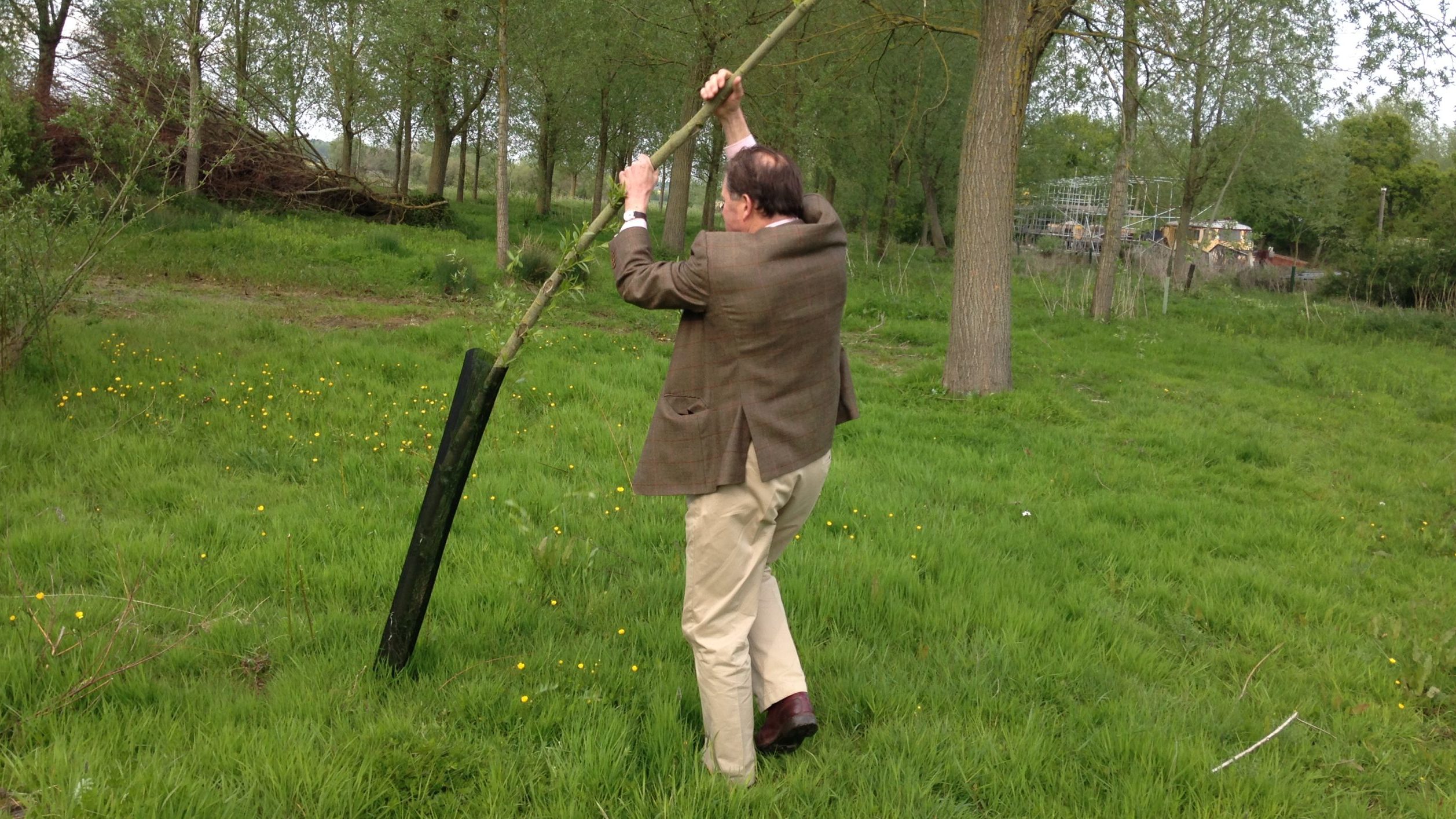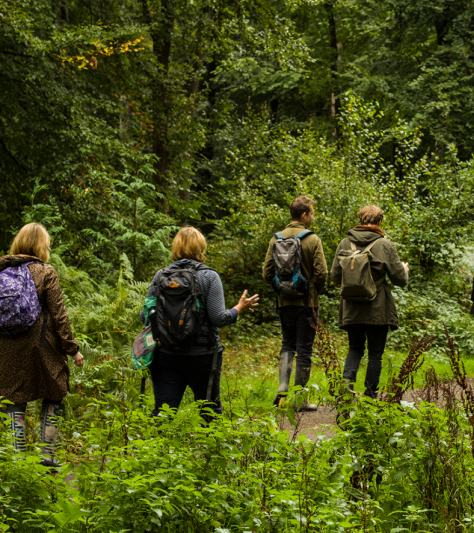Cricket Bat Willow Plantations on Former Grazing Land
Salix Alba (cricket bat willow) has traditionally been grown in the South East of England as a commercial crop.

Hole Park Estate, Lambsland and Maytham Farms, Rolvenden, Kent
Landowner: Edward Barham
The 16.8ha site has been grazing marshland since time immemorial – and remains so today! In an area with a high water table, clay marshland lies over a coal bed. Under the coal spoil is bog oak and an ancient forest floor.
Specific to the site is a water management programme which has seen a nearby sewage outfall diverted on to part of the land, raising the water table and nitrate levels for superior growth while increasing biodiversity though creating a wetland habitat.
Against the backdrop of changing land subsidies, demands for greater environmental management and the potential for income from natural capital, owner Edward Barham was keen to diversify income streams beyond the confines of traditional farming.
Hole Park Estate was awarded a Certificate of Merit in the RFS Excellence in Forestry Silviculture Awards 2019.
Planting
Cricket Bat Willow (Salix alba caerulea) was chosen because of the high value and market demand for its timber, its suitability for wet ground and the ability to develop additional income streams within the planting schemes.
Between 2014-2019, 1100 trees were planted using a mixture of setts – those provided by a national willow merchant on a buy back contract and home-produced setts (60:40). They were planted as 5m whips at 10mx10m in a 1.2m mesh guards.
These planting were in addition to more mature willow plantations elsewhere on the estate, some of which are now in their fourth rotation. The estate also grows clonal varieties of walnut for timber in a similar agroforestry system.
Management
No thinning is required. Regular pruning is necessary to ensure the stems remain free of side branches up to the crown.
Pruning is done in multiples of cricket bat lengths – usually 3.6m to secure 4 lengths and is achieved by hand rubbing young buds at bud burst and careful secateur pruning in the autumn. This is necessary until the bark occludes – failure to do so would devalue the crop.
Harvesting and Economics
Harvest is anticipated from Year 12 (Y12) when trees reach 140cm circumference but with a preference from buyers today for trees of 150cm circumference, reflecting a change to larger bats that have a greater depth of wood, as used in today’s game.
Growth rates are excellent and on target. Trees are sold standing with the buyer providing replacement setts that can be planted immediately into the row, 1 m from the stump.
Planting density is 100 trees/ha nominal and the current value of timber predicts gross income of £25,000/ha by the time the first rotation is complete by Y16. By that stage replanting will have commenced and the plantation will have become more varied in age.
There is ample room within the plantation to fell individual trees without damage occurring to those that remain.
“These plantations show a form of forestry that is likely to become more popular in the future, combining the best of forestry, faming and environmental practices.” Hole Park Estate owner Edward Barham
The estate has links with a number of purchasers and some trees are under contract to well-established national buyers. Market prices prevail.
Additional income streams
While timber is the primary crop there are a number of additional income streams available to these plantations to make them particularly valuable.
• The trees continue to be eligible for Basic Farm Payment since their density is < 100 trees/ha • Grazing beneath the trees is let with strict provisions should any tree damage be noted (only likely in the first three years) • The land qualified for environmental payments. Approval is anticipated for Mid-Tier Countryside Stewardship Scheme. This includes water management related to the use of the sewage outfall • Cricket Bat Willow harvest uses the main stem, but the tops will be dried on site for 12 months and then chipped for biomass – whole wood harvest
Hole Park can be contacted
Edward Barham
Tel. 01580 241344
info@holepark.com


